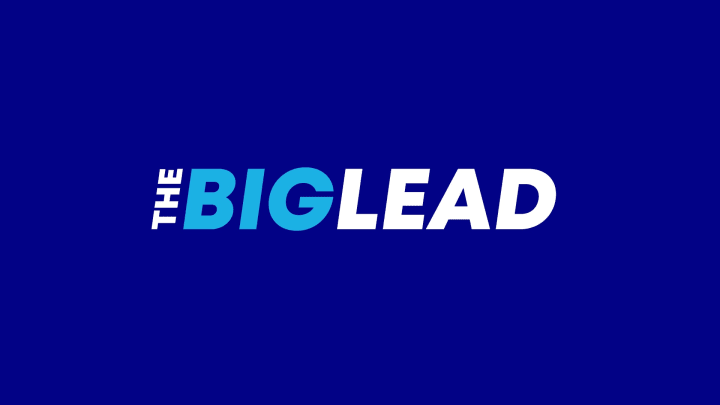Jameis Winston is "Pro-Ready," Marcus Mariota is Not, But Does It Matter?
By Jason Lisk

The search terms “Jameis Winston” and “Pro-Ready” lead to over 7,000 results, most written since the start of this year. (On the other hand, “Jameis Winston” and “crab legs” results in over 100,000 hits).
NFL.com’s first Mock Draft talked about “Pro-ready Jameis Winston,” for example. Trent Dilfer, on the other hand, said Marcus Mariota was not pro-ready. It’s been debated on television shows. The phrase “pro-ready” snuck up on us, and is now one of those scouting terms, like “high motor” or “plug and play” that gets passed around almost reflexively.
I’m not going to tell you whether Jameis Winston or Marcus Mariota is “pro-ready,” whatever that term means. I am going to tell you that when players have been described as “pro-ready” or not “pro-ready,” it seems to have little predictive value in determining whether they are ready to play professional football at a high level, immediately or in the future.
It’s probably because, while there is something to players being more advanced in their abilities or understanding of concepts, the term is used for a variety of different circumstances. Once-in-a-decade prospects, like Peyton Manning and Andrew Luck? They were described as “pro-ready” before they were drafted. We didn’t need that term to let us know that they were ready to be stars. Others? It may just mean they worked with Charlie Weis or some other perceived former NFL offensive assistant savant in college, or came from a “pro system.” (Which, by the way, seems way too restrictive a term compared to what the pros are actually doing, since it is quite varied across teams).
Here’s a list of quarterbacks who showed up as being described, in some fashion, as the most pro-ready in their draft class or others expected to be drafted in a similar range, in a Lexis news archive search as well as a general internet search of more recent articles. As you can see, the term has gained prominence in the last five years.
- Kerry Collins, 1995 (when compared to Steve McNair)
- Peyton Manning, 1998
- Cade McNown, 1999
- Philip Rivers, 2004 (when compared to Ben Roethlisberger)
- Matt Leinart, 2006
- Brady Quinn, 2007
- Brian Brohm, 2008
- Matthew Stafford, 2009
- Curtis Painter, 2009
- Sam Bradford, 2010
- Jimmy Clausen, 2010
- Blaine Gabbert, 2011 (in comparison to Cam Newton, who was described as “least pro-ready”)
- Christian Ponder, 2011 (compared to guys like Colin Kaepernick)
- Ryan Mallett, 2011
- Andrew Luck, 2012
- Brandon Weeden, 2012
- Ryan Lindley, 2012
- Matt Barkley, 2013
- Ryan Nassib, 2013
- Teddy Bridgewater, 2014
- Zach Mettenberger, 2014
- David Fales, 2014
None of the seven guys described as “pro-ready” drafted after the first two rounds have yet done anything notable in the NFL. Here, for example, is a description of Ryan Lindley, who you may recall burning a hole through your retina in the postseason.
"“According to [Greg] Cosell, Lindley made more NFL type throws than any other QB he evaluated on film. Lindley comes from a pro-style offense at San Diego State, and is likely the most pro-ready quarterback on this list. Lindley has adequate arm strength, but often has too much confidence in his ability to throw into tight windows.”"
I was so pro-ready to throw something at my television, and didn’t see him make many NFL type throws in the actual NFL.
As for the quarterbacks who were drafted earlier described as “pro-ready,” they more often than not proved less pro-competent than those drafted around them. We’ll call Bridgewater incomplete, though he did look the best of the rookies who started last year. Of the other 14, only four could really be called superior, both in the short-term and long-term, than comparably drafted quarterbacks: Manning over Leaf, Luck over Griffin III, Stafford over Sanchez, and, I suppose, Bradford over Tebow.
Recent history is littered with pro-ready guys like Matt Leinart (drafted next to Cutler), Brady Quinn (drafted before Kevin Kolb), Cade McNown (drafted one pick after Daunte Culpepper), and Christian Ponder (drafted ahead of Colin Kaepernick and Andy Dalton).
Jameis Winston may be another of those elite prospects who can function in a variety of offenses and is a savant. Further, there is no doubt that some skills, both mechanically and cognitively, would lead to a player being more ready to start right away. However, a lot of this is blurred with a catch-all phrase like pro-ready. It seems it is often describing whether a player has been exposed to certain routes, or a particular offense. In today’s NFL, there are a variety of systems, and the best coordinators put their players in a position to succeed. In fact, many who were deemed less than pro-ready had earlier success thanks to their athleticism. And no matter how “pro-ready” someone is judged to be at age 22 or 23, they are such a far way from the advanced quarterbacking of veterans like Peyton Manning, Tom Brady, and Aaron Rodgers that the distinction matters little.